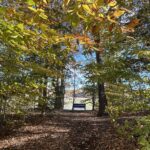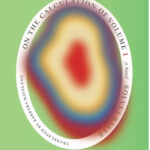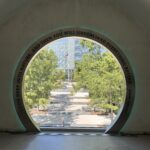December, 2018
now browsing by month
Ongoing

One of my biggest problems with academia is that breaks are so rarely breaks. Even for those who do not have administrative work to contend with, the break so sorely needed to recover from the previous semester is too often spent preparing for the upcoming semester. Winter break is particularly problematic in this way. Anytime stolen to relax and recover from the exhaustion of the semester is tainted by the knowledge that I should be prepping and planning for the new semester.
This year at the beginning of this break I was forced into a little down time by scheduling an outpatient surgery just after I turned in final grades. Dr. Lawyer came down the night before to take care of me on the day of surgery. We had a lovely evening talking and she reminded me of some advice I gave her this summer. She’d suffered heat stroke and was dealing with recovering from this brain injury. We visited shortly after her injury and as we walked around town and she apologized for her weakness and disorientation. She had felt up to walking around when we left her house, but now she felt weak and unsure of herself. Having dealt with my own brain injury, I told her to stop apologizing and to stop being so hard on herself for not recovering faster.
I explained a significant aspect of my own recovery that was hard to see, but helped me learn to be kind to myself about many aspects of my life post-stroke. The brain is very malleable. After an injury it accepts the new situation as normal and begins to chart its new pathways. I remember that, once I had been transferred to my rehab floor, I felt completely normal, like I should be fine. Yes. Some things took longer than normal and things had changed, but essentially I felt ready to get back to my old life. Coming home from the hospital I could look back and see, “Oh, right, I was not normal. I needed that time in the hospital to recover.” Again felt “back to normal.” I didn’t feel like I needed the two months off before the next semester; and I certainly felt ready to return to teaching in January. I made it through that semester, feeling fine and going about my business. Yet once I continued to actually recover, I could see that I hadn’t been fully back to normal.
I explained to Dr. Lawyer, “You are going to feel recovered. You are going to feel like you should be, or are, back to normal. But then, in a few months or a year, you are going to reach another point in recovery where you can look back and say, “Oh, I thought I was recovered, but I wasn’t.” This is important to hold onto, especially for those of us who tend to push too hard and take on too much, because it is so easy to start to berate ourselves for slowing down, to push ourselves too hard too fast to recover and be done with it. To move on. Though I couldn’t articulate it exactly in the moment, my point for Dr. Lawyer was that recovery from her brain injury would be ongoing.
When she reminded me of this conversation, I was a little surprised. I’d forgotten I told her about that. As I close out this year and look back at where I was this time last year, I’ve been reminded how it isn’t just physical recoveries that are incremental and ongoing. At this time last year, and I am pretty sure at various points over the last couple of years, I thought I was done. I’d recovered and moved on from my marriage. I was my new self. Yet, each time I look back, I realize I have recovered more. Realize that I should have been kinder to myself along the way, because I wasn’t done. I was still healing and needed to take it slow.
As I move into the new year, I know I will lose sight of this again. I will push myself and I will get frustrated when I feel like I am not making the progress I think I should. I haven’t settled on my conditions for the year, but my word for the upcoming year is foundation. As I work to establish and strengthen the base of my relationships, my finances, my health, my self, it is good to remember that this recovery is ongoing.
Reading, Rage, and Community

Recently, one of my favorite writer’s tweeted about reading Rebecca Traister’s Good and Mad: The Revolutionary Power of Women’s Anger for an upcoming column she is writing. At the time, I was in the middle of Soraya Chemaly’s Rage Becomes Her: The Power of Women’s Anger. I suggested we should compare notes. Traister’s book is next on my list of books to read this year, but since I currently have three other books in progress, in will definitely be 2019 before I get to it.
Just before the conclusion of her book Chemaly advocates for a type of anger competency to replace the idea of anger management. She gives suggestions for how to be aware of our anger and to manage it. Number seven in her list of suggestions “Cultivate Communities and Accountability” struck me. The section opens, “Anger can feel very isolating, but, in fact, it is an emotion that demands communication and conversation. It also finds strength in community.” While the section goes on to discuss protest communities, I found myself thinking of a different community. This year in articles, essays, columns, and whole books, I have been immersed in discussions of women’s anger.
Though I could probably trace this to other texts, the first piece on anger to really stand out and shape my thought was Lyz Lenz’s essay “All the Angry Women” in Roxane Gay’s collection Not That Bad: Dispatches from Rape Culture. Describing the Bible study group she leads each week, Lenz says she meets each week with angry women and describes the sessions as a type of group therapy. A place where the women can come and hold their anger in community. Lenz identifies the way for so many women, myself included, “anger is always reserved for someone else.” Someone else always has a greater right to be angry and, therefore, I should not. It echoes the theme of the whole collection — the way the fact that someone else has experienced worse can make us feel like we do not have the right to hurt, or feel anger, or to demand justice.
In what has been the most personally revelatory passage I read all year, Lenz writes: “Anger is the privilege of the truly broken, and yet, I’ve never met a woman who was broken enough that she allowed herself to be angry.” I read this passage at a time when my counselor was trying to get me to express my anger about my marriage. Yes. My marriage broke me. Yes. My marriage gave me many reasons to be angry. But, no … I was never broken enough to allow myself that anger. I still can’t or don’t. More and more I notice that I really only allow myself anger for others, never myself.
Chemaly tells us we need community and accountability to improve our anger competency. Lenz describes the communities of angry women in her weekly Bible study. Brittney Cooper’s book Eloquent Rage: A Black Feminist Discovers Her Superpower, which I also read this year, addresses anger as well, but the primary focus is the other theme dominating my reading this year — women’s friendships. As Lenz’s writing provides the cornerstone of my reading of women’s anger, Cooper is the cornerstone of friendships for me. Filled with cultural insight and commentary, her book is a love story, an ode to her friendships. Maybe not everyone has read the book this way, but the message is there throughout: our friends intervene when we need to be set straight; they hold us up when we stumble; they champion us as we fight; and they celebrate our successes.
One of the final books I will read this year is Kaylee Shaefer’s Text Me When You Get Home: The Evolution and Triumph of Modern Female Friendship. The connection isn’t fully formed, but I am struck by how these themes anger, community, and friendship enveloped this year. Perhaps, the idea I’m reaching for is that circling behind it all in subtitles and inferences is the idea of power. Individually we each hold power, but when bound together into communities, bound together by our anger for others and ourselves, that power multiplies. Power energizes and it buoys. Our friendships generate it and our anger focuses and wields it. Perhaps that is is why at the end of a year of reading about women’s anger, I feel so hopeful.







 D5 Creation
D5 Creation